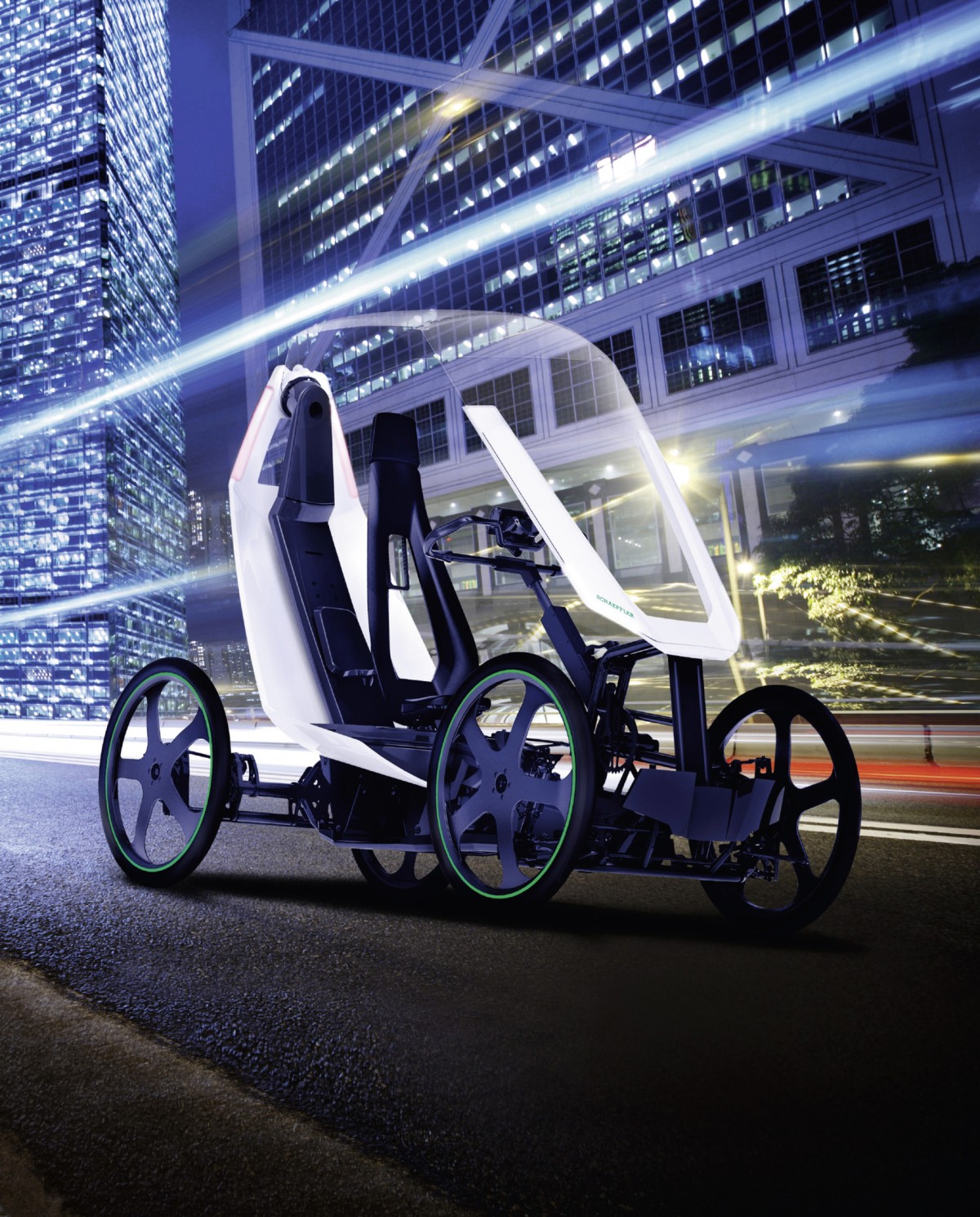
Schaeffler, a German supplier of rolling element bearings to automotive and aerospace industry has unveiled a bio-hybrid powered personal mobility concept vehicle.
The company says that increasing traffic and increasing emission levels in urban areas is turning into a concern and it believes that its new concept vehicle is a holistic approach for 'mobility for tomorrow'.
The vehicle is powered by both pedaling and electricity. Schaeffler deputy CEO and chief technology officer Prof. Peter Gutzmer said: "All-electric mobility will not be sufficient to guarantee sustainable, energy-efficient mobility for tomorrow in the passenger car sector."
Schaeffler says that the vehicle is similar to a bicycle sans, all the disadvantages such as exposure to weather and stowage space.
With pedelec drive system and speed restrictions of 25 km/hr, the bio-hybrid can be operated without a driver's license and can also be used on cycle tracks.
In electric mode, the vehicle has a range of a minimum of 50 km with the speed limit.
The four wheeled bicycle offers the advantages of stability over conventional bicycles. The bicycle is also small in size, with dimensions of 2 meters in length, 1.5 meters in height and 85cm of width.
The vehicle is a two-seater with variable luggage compartment and also comes with electric reverse gear which gives easy maneuverability.
With a portable battery system on the vehicle, the company says that it can be easily integrated into our present day-to-day lives.
The vehicle has also been designed to have features such as retractable roof, integrated smartphone connection to assess weather and traffic conditions at any time.
Prof. Gutzmer adds: "Important prerequisites with regard to infrastructure must be fulfilled before this type of individual mobility can become established on the market."
"Metropolitan areas and major cities must continue to change - and they will. Cities such as London, Paris and Singapore are already investing hundreds of millions in the development of cycle tracks.
"High-speed cycle tracks, which connect cities, for example, in the Ruhr area, will enable extension stages of the micro-mobile with higher speeds.
"There are already discussions in Germany about opening cycle tracks with a legal speed limit of 40 km/h. All these developments mean that our concept has great potential to change urban mobility."
Image: Schaeffler's Bio-hybrid Personal Mobility Concept Vehicle. Photo: Courtesy of Schaeffler.





